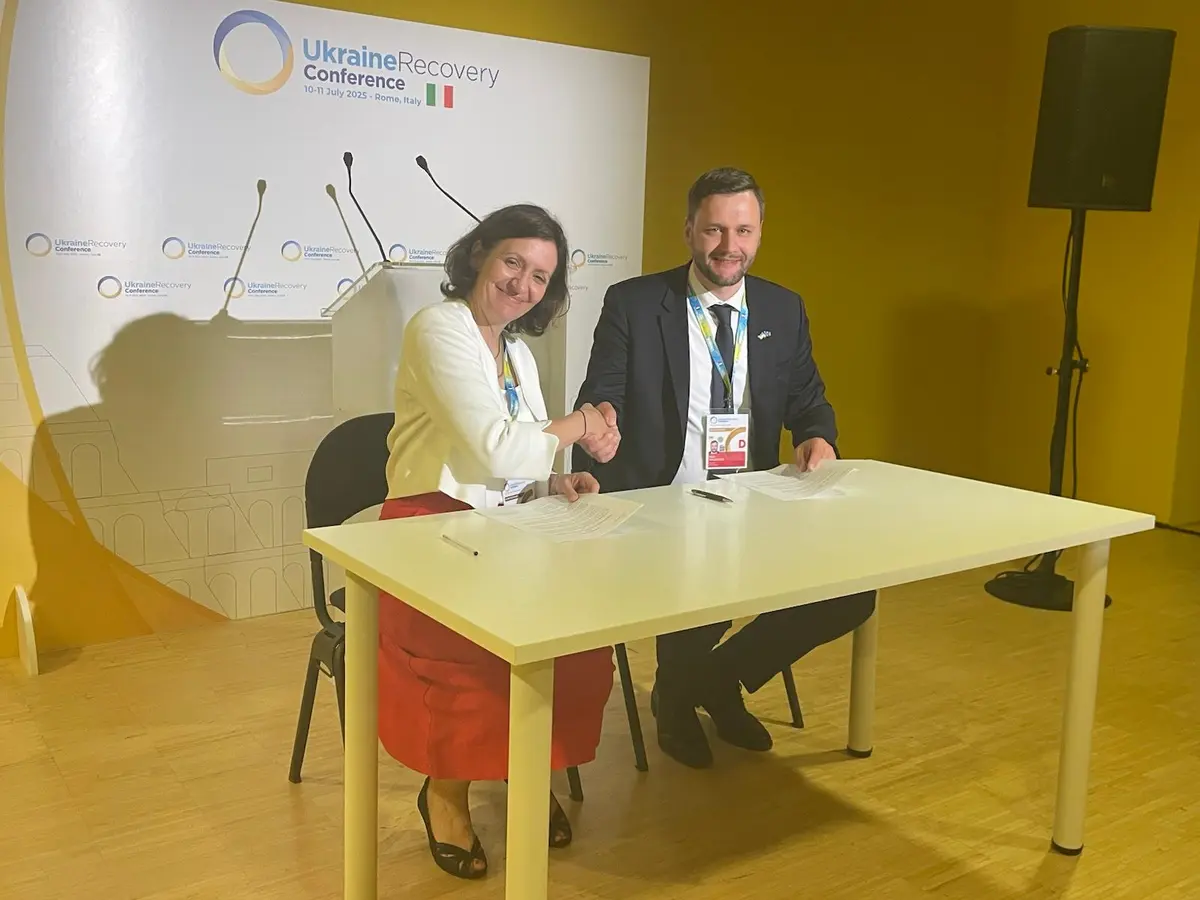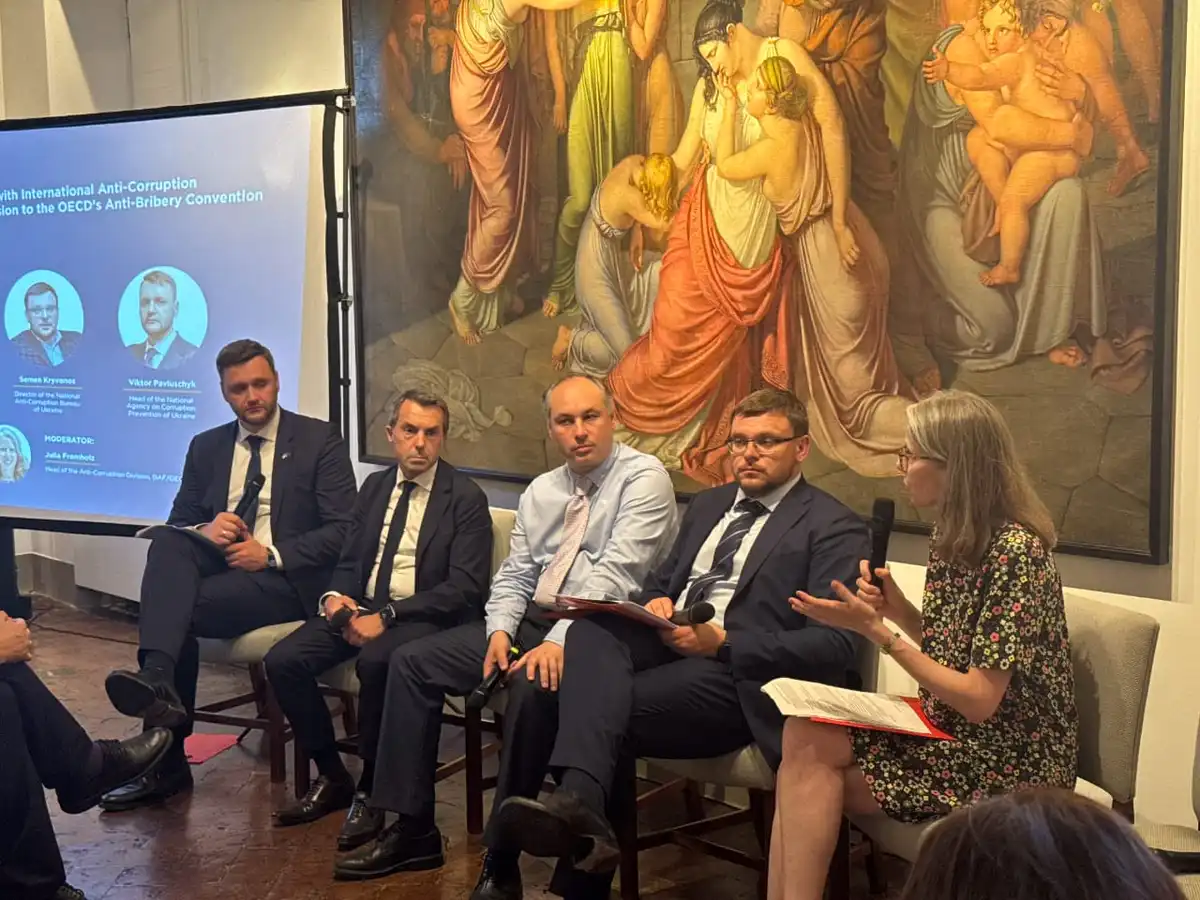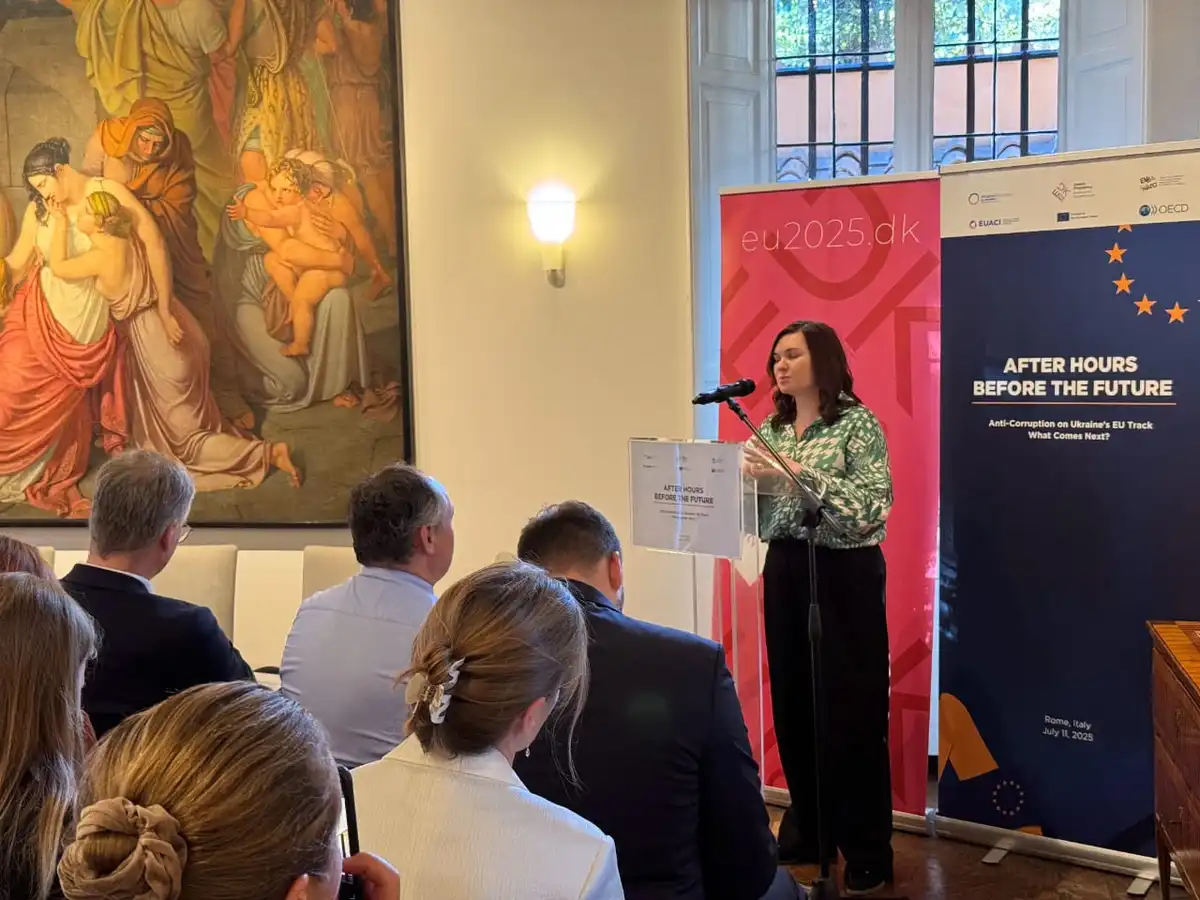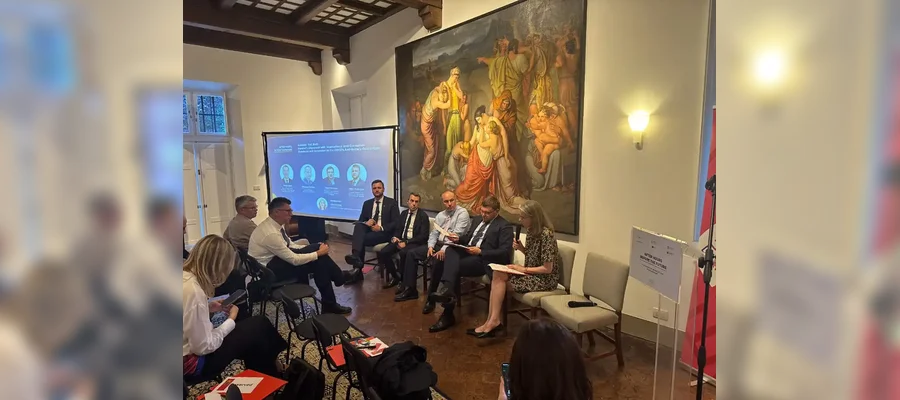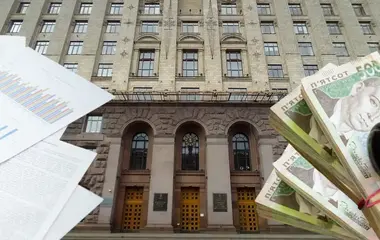As part of the Ukraine Recovery Conference (URC2025), which took place this year in Rome, Italy, Viktor Pavlushchyk, Head of the National Agency on Corruption Prevention, participated in a number of key international events.
During the event, organised by the Basel Institute on Governance, participants discussed, among other things, the development of a new Anti-Corruption Strategy for Ukraine for 2026-2030 and a programme for its implementation.
"The new strategy will not only take into account previous experience, but will also comply with the recommendations of the European Commission, the Organisation for Economic Co-operation and Development (OECD), and the realities of domestic policy. The document is currently being actively developed with the participation of representatives of civil society, international partners and experts. We place particular emphasis on ensuring integrity through systemic and sustainable changes in the areas most vulnerable to corruption. At the same time, the NACP continues to monitor the implementation of the current state anti-corruption programme, which contains over a thousand measures. According to the latest data, more than 42% have already been implemented, and another 20% are in the final stages," said Viktor Pavlushchyk.
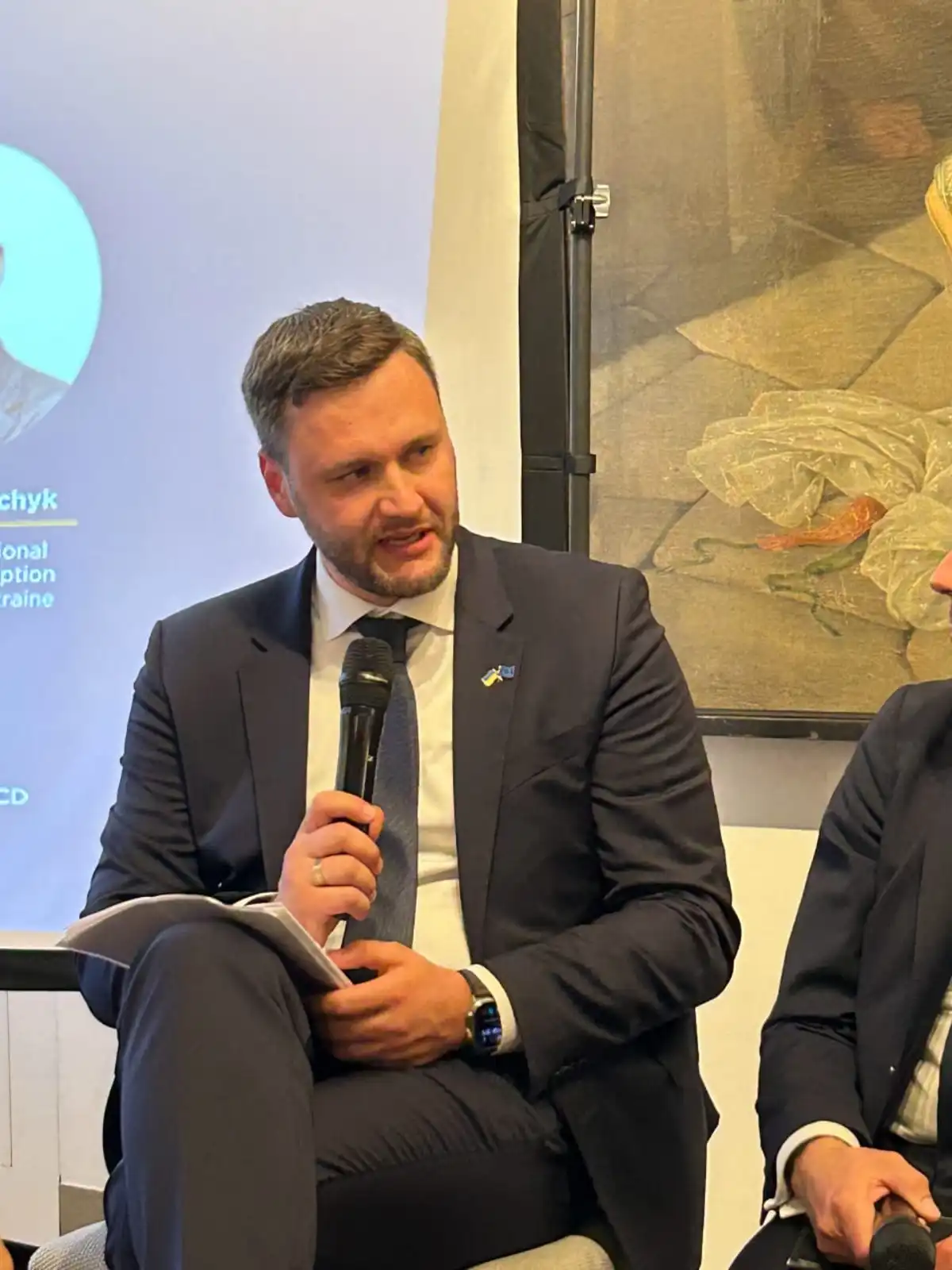
The URC2025 discussions focused particularly on Ukraine's compliance with international standards. Viktor Pavlushchyk participated in the panel ‘Harmonisation with international requirements and accession to the OECD Anti-Bribery Convention,’ organised by the EU Anti-Corruption Initiative (EUACI) in cooperation with the Office of the Deputy Prime Minister for European Integration, the OECD and the Danish Embassy in Rome.
"Anti-corruption policy remains a key condition for sustainable development and strengthening trust in state institutions. We recently presented the results of a comprehensive assessment of Ukraine's anti-corruption policy as part of the 5th round of monitoring of the Istanbul Action Plan. Ukraine scored over 90 out of 100 in key areas such as anti-corruption policy, institutional capacity and whistleblower protection. This recognition testifies to the significant progress achieved over the past two years and underscores the strategic importance of our work at the NACP. The role of anti-corruption strategy in the context of European integration cannot be overestimated — it shapes a systematic approach to eliminating corruption risks," stressed the Head of the NACP.
During the Conference, a Letter of Intent was also signed between the NACP and the OECD. The document paves the way for the introduction of integrity indicators at the regional level. These indicators are an important tool for independently assessing the effectiveness of anti-corruption policies and identifying reform priorities in the regions. The parties agreed to pilot this approach, which will be another step towards the formation of a sustainable system of public integrity in Ukraine. This, in turn, is in line with the OECD's recommendations and Ukraine's course towards transparent and sustainable reconstruction.
